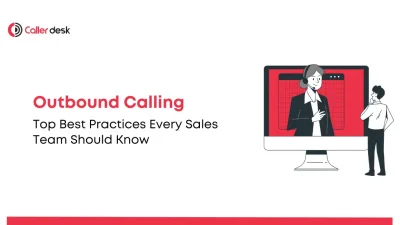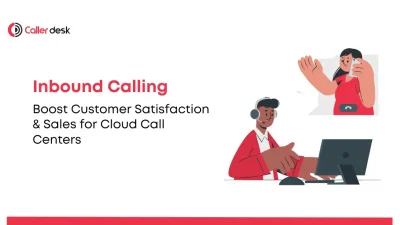Selling every day is not easy.
Your sales team works hard—calling leads, sending follow-ups, and trying to close deals. But sometimes, they lose interest or feel tired. That’s normal.
So how do you keep them excited and performing their best?
One simple way is by using sales incentives.
Sales incentives are rewards you give to your team when they achieve certain goals—like reaching a monthly target or closing more deals. These rewards can be cash, gift cards, time off, gadgets, or even fun trips.
They help in many ways:
- Your team works harder
- They stay focused on results
- They feel happy and appreciated
- They stay longer in your company
- And your sales go up
When your team knows they’ll be rewarded for good work, they try harder. And when they feel valued, they perform better.
What Are Sales Incentives?
Sales incentives are rewards you give to your sales team when they do a good job—like reaching a sales goal, closing more deals, or booking extra meetings.
It’s a way of saying:
“Great job! You earned this.”
These rewards can be things like:
- 💰 Cash or bonus money
- 🎁 Gift cards, gadgets, or fun items
- 🏖️ Extra time off or paid vacations
- 🏆 Trophies, awards, or public shout-outs
But here’s the most important thing:
Sales incentives aren’t just gifts-they’re tools that help people stay excited, work harder, and feel proud of their efforts.
When your team knows they’ll be rewarded for doing well:
- They stay motivated
- They aim higher
- They feel happy to be part of your company
And when that happens, sales go up-and so does team spirit.
15 Sales Incentives That Actually Work
1. Performance-Based Cash Bonuses
Cash bonuses are among the most effective incentives. They directly reward team members for achieving specific targets—such as monthly revenue goals or closing a certain number of deals. This creates a strong link between effort and reward, motivating sales reps to stay focused and consistent.
2. Salesperson of the Month Recognition
This is a formal program to recognize the top-performing rep each month. Along with a certificate or trophy, you can display their name on an internal leaderboard or company wall. Regular recognition promotes a culture of excellence and healthy competition across the team.
3. Extra Paid Time Off (PTO)
Offering a day or two of additional paid leave can be a powerful incentive. This gives your team members time to recharge while reinforcing that their efforts are seen and appreciated. It’s especially effective for pushing performance during high-stress periods.
4. Gift Cards and Digital Vouchers
Gift cards to popular platforms like Amazon, Flipkart, or Visa-based vouchers give employees flexible spending options. These work well as weekly or monthly incentives for short-term goals like qualifying leads, booking demos, or follow-up calls.
5. Travel Rewards or Weekend Getaways
For high-impact goals, such as exceeding quarterly sales targets or generating record-breaking revenue, all-expenses-paid trips can serve as motivational rewards. These types of incentives are aspirational and memorable, leading to long-term motivation.
6. Sponsored Learning Opportunities
Covering the cost of professional development—such as a sales course, certification, or skills workshop—can turn incentives into an investment. This supports career growth, builds loyalty, and upgrades your team’s capabilities.
7. Executive Dinners or Private Meetings with Leadership
Allow top performers to have dinner with the company’s CEO, founders, or key decision-makers. These experiences build direct connections between reps and leadership, encouraging openness, recognition, and trust. It’s also an opportunity to share feedback and ideas.
8. Event Passes (Concerts, Sports, Theatre)
Tickets to cricket matches, concerts, or live events can be tied to specific achievements. These rewards add a personal and lifestyle element to sales incentives, appealing to reps’ interests outside of work.
9. High-Value Tech Gadgets
Providing the latest gadgets—such as smartwatches, wireless earbuds, or tablets—makes the reward feel premium. These are ideal for quarterly achievements or contests, offering practical value while creating excitement across the team.
10. Sales Bingo
This involves creating a bingo card with common sales tasks like “follow up 5 leads,” “book 3 meetings,” or “close 1 upsell.” As tasks are completed, reps mark off boxes to earn prizes. It gamifies routine work and keeps team members engaged in daily targets.
11. Shared Incentives for Collaborative Deals
When multiple team members (such as an SDR and an Account Executive) contribute to a closed deal, the reward is shared between them. This encourages teamwork, improves internal coordination, and strengthens collaboration across sales roles.
12. Most Improved Performer Award
Recognizing progress-not just top performance-can drive motivation across all experience levels. This incentive highlights individuals who have shown the greatest improvement in metrics like calls made, conversions, or pipeline growth over a specific period.
13. Self-Care or Wellness Days
Offering spa vouchers, mental health day-offs, or subscriptions to wellness apps allows high-performing employees to take care of their well-being. This helps manage stress, avoids burnout, and shows that performance and personal care can go hand in hand.
14. Personalized Favour from the Manager
This could be something simple like the manager treating the rep to lunch, running a fun errand, or even a relaxed dress code day. These informal, personal gestures build stronger team relationships and bring light-hearted energy to the workplace.
15. Raffle Contest for Small Tasks
You can run a fun contest where your sales team gets a ticket every time they complete a small task—like making 10 calls or booking a meeting. At the end of the week or month, you collect all the tickets and pick one (or more) winners randomly to get a prize.
This way, everyone in the team has a chance to win—not just the top sellers. It keeps the whole team excited and encourages them to do their daily work regularly.
How to Build a Sales Incentive Plan
If you want your sales incentives to truly work, you need a clear and structured plan. Here’s how to create one that motivates your team and delivers real results.
Step 1: Set Clear and Measurable Goals
Start with specific and achievable targets. For example:
- “Close ₹10 lakhs in sales this month”
- “Schedule 20 product demos”
The goal should align with your overall business objectives and be easy to track.
Step 2: Choose the Right Rewards
Understand what truly motivates your team. Some may prefer cash bonuses, while others value learning opportunities or extra time off. Offer a mix of monetary and non-monetary rewards that appeal to different team members.
Step 3: Make the Rules Easy to Understand
The incentive structure should be simple enough for everyone to grasp quickly. Every sales rep should clearly know:
- What actions are required
- What milestones need to be hit
- What rewards they will receive
Avoid complex formulas or multi-layered rules. If it takes a long explanation or multiple meetings to clarify, it’s too complicated.
Step 4: Track and Display Progress
Use visual tools like leaderboards, dashboards, or wall charts to track individual and team progress. When sales reps can see how they’re performing in real time, it builds momentum and encourages healthy competition.
Step 5: Gather Feedback and Refine the Plan
After each incentive cycle, ask your team what worked and what didn’t. Use their feedback to improve future plans. Adapting based on experience helps you stay effective and keeps the program fresh and engaging.
Conclusion
Giving rewards to your sales team isn’t just about gifts—it’s about keeping them excited, focused, and happy at work.
When people know they’ll get something extra for doing a good job—like bonuses, time off, or even just a thank-you—they try harder, stay longer, and feel proud of their work.
The best sales incentive plans are:
- Easy to understand
- Connected to clear goals
- Based on what your team actually cares about
If you keep it simple and listen to your team’s feedback, your incentive plan will not only boost your sales—it will also make your team stronger, more motivated, and ready to win every day.
Now is a great time to build your own plan and see the difference it can make.
Also Read This- 21 Sales Closing Techniques (That Actually Work)





